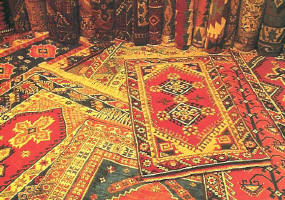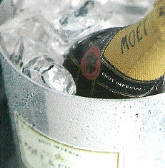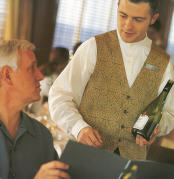|
Awaiting Your Return From Shore |
The fire,
frost and water symbolized by the red, white and blue of Icelandís flag are
manifested in this northern land. The country is located so far north that
parts of it touch the Arctic Circle where ice and snow defy penetration by
modern civilization. Volcanoes on occasion spew forth rivers of glowing
lava. Yet Icelandís name is something of a misnomer; thick tundra and
mountain flowers cover the country in the summer, when warm ocean currents
produce a climate similar to that of the northern United States.
As living evidence of the expanding Atlantic Rift, 20-million-year-old
Iceland widens almost an inch a year. Great rifts, boiling water and new
earth are the results of this creative process. The island was inhabited
briefly during the 8th century by Irish hermits; permanent settlement began
in 874 when a Norwegian named Ingolf Arnarson arrived at present-day
Reykjavik. In 930, the settlers formed a legislature, the Althing, creating
the Commonwealth of Iceland.
From the 10th to the 14th centuries, Iceland developed a literary form, the
Icelandic Saga, which spread throughout the Nordic culture and into the
English and German languages. It was used to spin stories of the gods,
record historic events and glorify heroes.
Reykjavik, or Smoky Bay, was so named in 874 A.D. by Ingolf Arnarson when he
sighted the numerous hot springs on the Seltjarnarnes Peninsula. He built a
cabin here 900 years before Reykjavik was incorporated. Today this
remarkably pollution-free city on Faxa Bay is a major seaport, the capital
of Iceland and home to about half of the countryís 270,000 people. Wrapped
around a sweeping bay, Reykjavik has managed to retain its charming
Old-World atmosphere. A pastiche of red-blue-and green-roofed houses
together with the tall gray tower of Hallgrimís Church dominate the skyline.
In the Old Town, many of the wooden buildings have been lovingly restored
and stand side by side with modern timber and concrete structures. Few
chimneys are seen as heat is almost exclusively supplied by steam piped from
the nearby hot springs.
There are fine museums and art galleries; historic pubs present a hub of
activity in late afternoon. The unusual, beautiful countryside outside of
Reykjavik includes such natural wonders as volcanoes, geysers, glaciers,
mountains and spectacular waterfalls. |
Awaiting Your Return
From Shore |
|
Complimentary
Spirits Await |
Return to Your
Suite and Sail Away to The Next Adventure |
Entertainment
and Dancing Await You |









